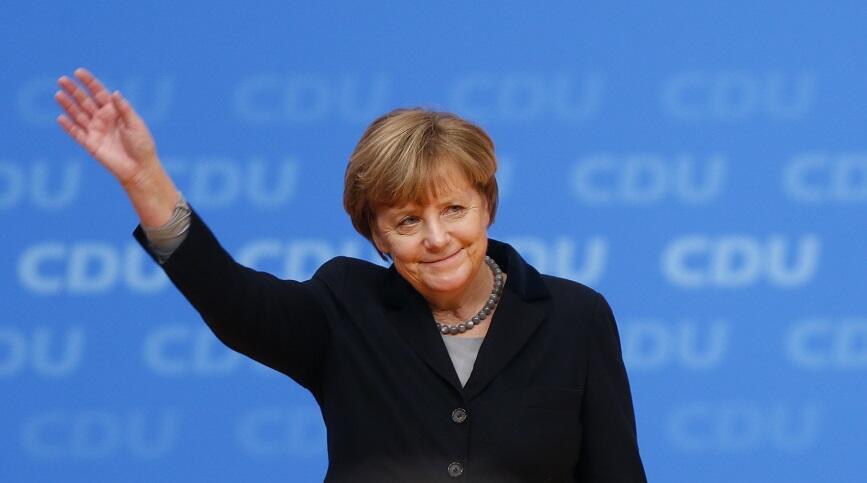German ruling CDU party meets to choose successor to Angela Merkel
This weekend, Germany's ruling Christian Democrat Union will convene to debate the succession of Angela Merkel, who has been at the helm of the party since April 2000, being re-elected eight times. Her successor will inherit a pandemic and have to direct Europe's largest economy in an increasingly divided EU. Is Merkel ready to hand over power?
Issued on: Modified:

After leading the Christian Democrat Union (CDU) for over 20 years, Merkel announced in October 2018 that she would step down to leave others contest this weekend's election.
“I don’t believe that anything will change in international negotiations," she said during a press conference explaining her decision, adding that she would have more time to concentrate on her tasks as head of government.

The CDU has been Germany's ruling party since 2005.
Three candidates are now in the running to succeed Angela Merkel, who still enjoys an approval rate of some 70 percent. In February 2020, her designated successor, Annegret Kramp-Karrenbauer ("AKK"), who had taken over party leadership in December 2018, dropped out of the race after a series of blunders that undermined her authority, leading to a disastrous result in local polls.

The three who stepped forward are all white, male and between 50 and 60 years old. The winner will face a worsening Covid-19 situation, and an increasingly divided European Union.
Armin Laschet

Governor Armin Laschet (59), a moderate, is thought likely to steer Germany in the same style as Merkel, combining a liberal social approach with fiscal prudence.
He beat the Social Democrat candidate during local elections in North Rhine-Westphalia, one of Germany’s biggest Länder. After organising a coalition with the Free Democratic Party (FDP) he became governor.
Norbert Roettgen

Foreign policy expert. Roettgen (55) heads the Foreign Affairs Committee in the German parliament, the Bundestag. As foreign policy and diplomacy expert, he likes to project himself in the middle, thus being acceptable for everybody.
Friedrich Merz

Businessman and millionaire. He was narrowly defeated by AKK in the 2018 runoff elections for the CDU leadership. He managed to gain popularity among both the conservative wing of the party as with the party youth, but is no stranger to controversy.
He made his millions as a corporate lawyer, and worked as chairman of the board of directors of investment management firm BlackRock Asset Management Deutschland AG.
Friedrich Merz, 65, would mark a break from the Merkel era. The party has dominated the center ground, ending military conscription, enabling if not embracing same-sex marriage, and accepting large numbers of migrants, among other things.
Not the final word
The CDU as a whole has benefited from the coronavirus crisis, taking a strong opinion poll lead into an unusually uncertain election year thanks to good reviews for Merkel's pandemic leadership.
Whether any of these candidates can take those ratings through to the election is uncertain. Saturday's decision won't be the final word on the center-right candidate for chancellor.
(With AP)
Daily newsletterReceive essential international news every morning
Subscribe